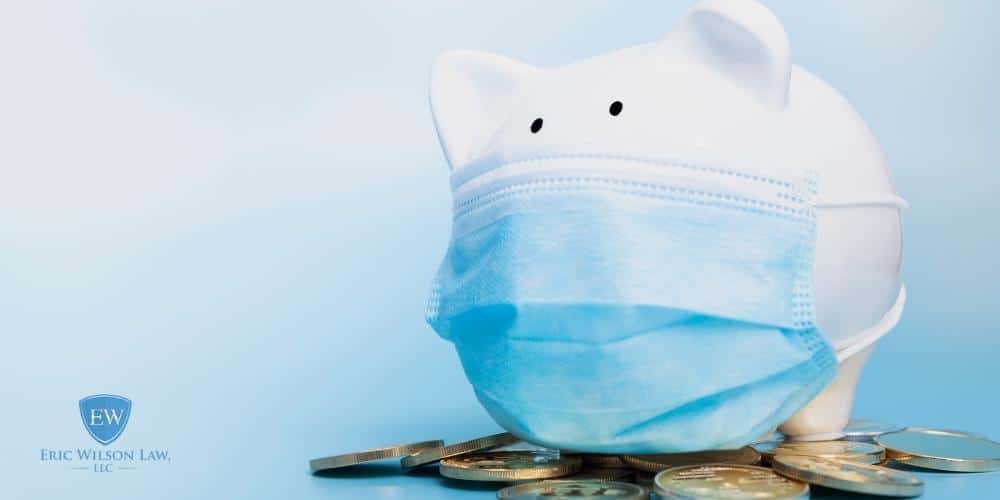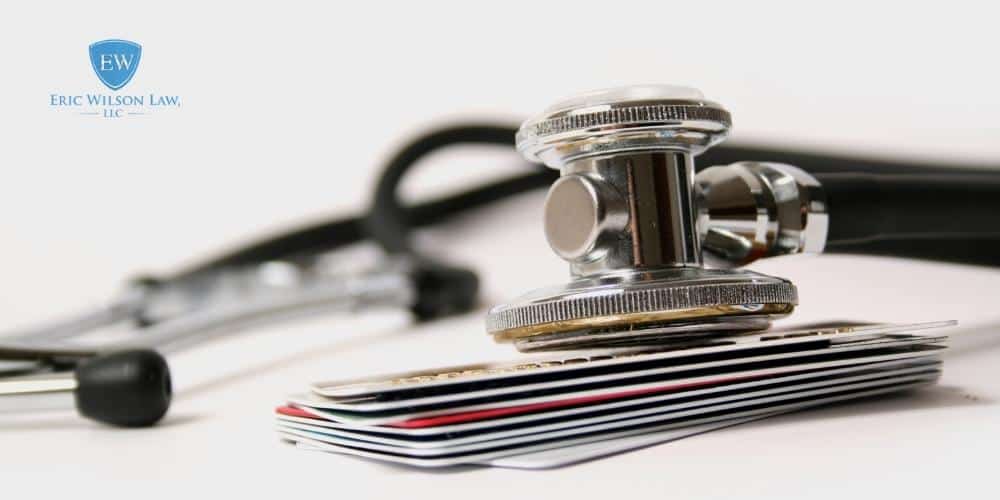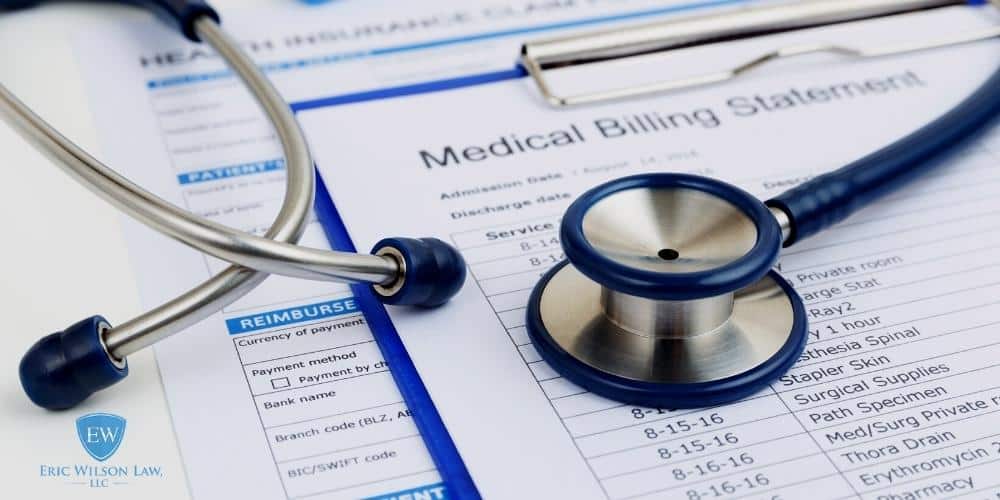Medical Debt Relief
You may have heard this saying before: “we’re all one medical emergency away from filing for bankruptcy.” While many say this as a joke, this is the stark reality for thousands of Americans who feel crushed beneath the weight of their medical debts. Luckily, filing for bankruptcy isn’t the only way to achieve medical debt relief. Below, Tuscaloosa bankruptcy lawyer Eric Wilson explains other options that could eliminate medical debt, and how he can help.
Eric Wilson is well-versed in bankruptcy law and has more than 25 years of experience in helping his clients achieve a life of financial freedom. If filing bankruptcy is truly the best option for your financial situation, Eric Wilson will walk you through the entire bankruptcy process. Call our law firm today at 205-349-1280 for a free consultation.

Which Country Has The Most Expensive Medical Care?
It’s no secret that the United States has the most expensive healthcare in the world despite the fact that our country ranks 46th for average life expectancy (approximately 79 years old for both sexes). But why?
A Harvard report claims that part of the reason why American healthcare is so expensive is because our country doesn’t have payment limits for medical tests and treatments such as CT scans, MRI’s, new medications, organ transplants, etc.
Another reason is due to the fact that health insurance companies require many hospitals and medical providers to prove that certain treatments are necessary. In fact, senior research scientist in Harvard’s Department of Health Policy and Management, Austin Frakt, says “[the healthcare industry] can command more market power, they can command higher prices. That’s going to drive your premiums up.”
How Many Americans Have Medical Debt?
Approximately 100 million – or 41% – of Americans have medical debt according to a 2022 report. Many of these Americans don’t just have a few dollars of outstanding medical bills either. In fact, this study goes on to say that almost 25% of Americans with medical debt owe between $1,000 and $2,500. A smaller number of Americans (12%) owe more than $10,000. Not only that, but a 2022 report from the Consumer Financial Protection Bureau states that Americans had a whopping $88 billion in combined medical debt on their credit reports in 2021.
In between rent or mortgage payments, monthly groceries, health insurance payments, car payments, and trying to enjoy life, this amount of debt can be a huge burden to carry.
The irony is that the stress of unpaid medical bills can lead to even more unpaid medical bills, according to a 2013 study. That’s because long-term chronic stress can create a wide variety of mental and physical health issues such as:
- High blood pressure
- Depression and anxiety
- Weight issues on both ends of the spectrum, such as being obese or being way too thin
- Substance abuse and addiction
- Digestive issues such as nausea, vomiting, diarrhea, constipation, etc.
- Stroke
- Heart disease
- Heart attack
- Headaches
- Insomnia
- Chronic pain
- And so much more
Health Insurance and Medical Debt
Because healthcare in the U.S. is so expensive, more than 90% of Americans have some kind of health insurance coverage. Health insurance does help curb the costs of medical treatment, but still, it doesn’t cover everything especially when major medical emergencies happen. This can be due to a variety of factors:
- Your medical treatment isn’t included in your health insurance
- Your health insurance doesn’t think the treatment you received was “medically necessary”
- Or your stay in the hospital was listed as inpatient or observation
Health insurance is a big monthly expense in and of itself. According to a 2020 study, the average American spent $466 for a family health care plan and $104 for an individual health care plan on a monthly basis. Monthly insurance rates often depend on state law, the type of health insurance, income level, age, plan type, and so much more.
Having unpaid medical bills on top of these monthly payments to your insurance company can naturally cause immense financial stress.
Can Medical Debt Hurt My Credit Score?
Up until very recently, unpaid medical bills could certainly affect credit scores. In fact, medical debt could stay on your credit report for as long as any other kind of unpaid debt: seven years.
The good news is that starting July 1, 2022, the three main credit bureaus (Experian, Equifax, and TransUnion) will be removing paid medical debt from credit reports in a nationwide effort to provide medical debt relief. In other words, if you’ve fully paid off your medical expenses and you still have a negative mark on your credit report, you can expect it to disappear in the coming months. Other new changes include:
- Americans will not see unpaid medical expenses on their credit reports for at least 1 year, instead of the previous time frame of 6 months.
- Starting in 2023, medical bills worth less than $500 that are in collection will not appear on credit reports.
As we all know, having one or more negative marks on your credit report can cause issues when obtaining car loans, credit card loans, and even affordable housing. So this recent change can make a big difference for many Americans’ finances.
New Creditor Guidelines for Medical Debt
In April 2022, the Biden Administration also announced new rules for debt collectors and debt collection agencies when it comes to notifying Americans about their medical debt. These new actions will:
- Ensure that medical providers and debt collectors are held responsible for poor debt collection practices,
- Reduce the impact of unpaid medical bills on someone’s access to credit,
- Help veterans receive forgiveness for their medical debt,
- And ensure that Americans know their rights when it comes to debt and legal debt collection practices.
If you’re not receiving one or more of these benefits moving forward, contact an experienced medical attorney at Eric Wilson Law.
Can You File Bankruptcy For Medical Bills?
Yes, you can file for bankruptcy if you have any kind of unsecured debt such as credit card debt, personal loans, and of course, medical debt. The legal team at Eric Wilson Law can help you obtain medical debt relief from Chapter 7 bankruptcy or Chapter 13 bankruptcy.
Chapter 7 Bankruptcy
Chapter 7 is one of 6 chapters of bankruptcy included in the U.S. bankruptcy code. It’s also the most common type of bankruptcy that people file for debt relief.
Chapter 7 bankruptcy relief works by using money from sold assets (personal property, cars, homes, expensive collectables, etc.) to pay off unsecured debts. It’s important to remember that you won’t lose every valuable item you own during your bankruptcy case because there are certain state and federal exemptions in place.
With the help of Tuscaloosa bankruptcy attorney Eric Wilson, you can see your medical debts discharged in as little as 90 days.
Chapter 13 Bankruptcy
Chapter 13 bankruptcy is the second most commonly filed chapter of bankruptcy in the United States. A Chapter 13 bankruptcy filing works differently than Chapter 7. Instead of selling your assets in order to pay off your debt, an experienced team of bankruptcy attorneys will help you create a payment plan that can last anywhere from 3 to 5 years. So if you follow the plan to a T, you can expect to completely pay off your medical bills within 3 to 5 years.
This chapter of bankruptcy is certainly the more time-consuming one, but some people prefer it over selling their assets. Tuscaloosa bankruptcy lawyer Eric Wilson can help you determine which chapter of bankruptcy is right for you and your medical debts.
How to Pay Off Medical Debt Without Filing Bankruptcy
Filing for bankruptcy is simply not an option for some people because it’s a huge financial decision that can impact your credit report for years to come. Below, our Tuscaloosa bankruptcy attorneys discuss other medical debt relief options that you can pursue instead of filing bankruptcy.
Payment Plan
If you need a certain medical test or treatment and you know you can’t afford it right off the bat, work out a payment plan with your medical provider. That way, you can pay off the cost of your treatment over the course of a year instead of paying it all at once and enduring loads of financial stress.
Personal Loans
Consider taking out a personal loan in order to pay off your medical expenses. This option may be best if you already have good credit and if you have several thousand dollars worth of unpaid medical expenses. Make sure to “shop smart” for a personal loan by comparing rates, repayment terms, and other loan-related fees. Remember, you will have to pay back this loan at some point.
If you have less than $1,000 of medical debt, however, taking out a personal loan may result in more trouble than it’s worth.
0% Interest Credit Card
Another option is putting all your medical bills onto a 0% interest credit card and paying it off over the course of a year. That way, you can pay off the debt without racking up more interest. If you have a large amount of medical debt – like multiple thousand dollars worth – that you don’t think you can pay off within a year, this may not be a good idea for you. After the 1 year mark, you’ll have to start paying interest again. Additionally, this may not be a good option for you if you don’t have good credit.
Medical Credit Cards
Some medical providers accept medical credit cards for specific procedures that may not be covered by health insurance plans. Additionally, many medical credit cards have 0% interest for 6 to 12 months, allowing you to pay off your debt without accruing interest. All you have to do is fill out an application at your doctor’s office.
Again, this will only work in your favor if you think you can pay off your debt within 6 to 12 months. If not, you may face a deferred interest rate, which will make everything so much more expensive.
Income-Driven Hardship Plan
You may meet the eligibility criteria for an income driven hardship plan if you have low annual income or even low disposable income. This type of plan will break up your total debt into bite size chunks or even reduce the amount of money you owe. You may have to apply for Medicaid in order to meet eligibility requirements, but talk with your medical provider to determine if this would be a good option for you.
Negotiate With the Creditor or Medical Provider
Lastly, you can negotiate with either your creditor or your medical provider in order to reduce the amount of money you owe, remove medical debts from collections, or work out a feasible payment plan for your medical debts. If you believe negotiation is truly the best option for your situation, allow Tuscaloosa medical debt attorney Eric Wilson to help you formulate a strong argument.

Call a Tuscaloosa Medical Debt Relief Lawyer Today
At Eric Wilson Law, we help our clients achieve a debt-free life with a variety of services, not just bankruptcy proceedings. If your medical debts are causing you even more medical issues due to financial stress alone, it’s time to seek professional help from medical debt attorney Eric Wilson. He will carefully review your financial situation and help you determine the best course of action, whether that’s filing a consumer bankruptcy case, taking out a personal loan, or negotiating with your creditors. Eric Wilson is ready to start an attorney-client relationship with you today. Call 205-349-1280 to schedule a free consultation.
Practice Areas
Office Location
Eric M. Wilson, LLC
1902 8th St Tuscaloosa, AL 35401
205-708-2115
Tuscaloosa Law Office Map and Directions

